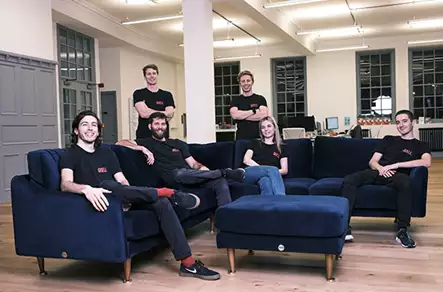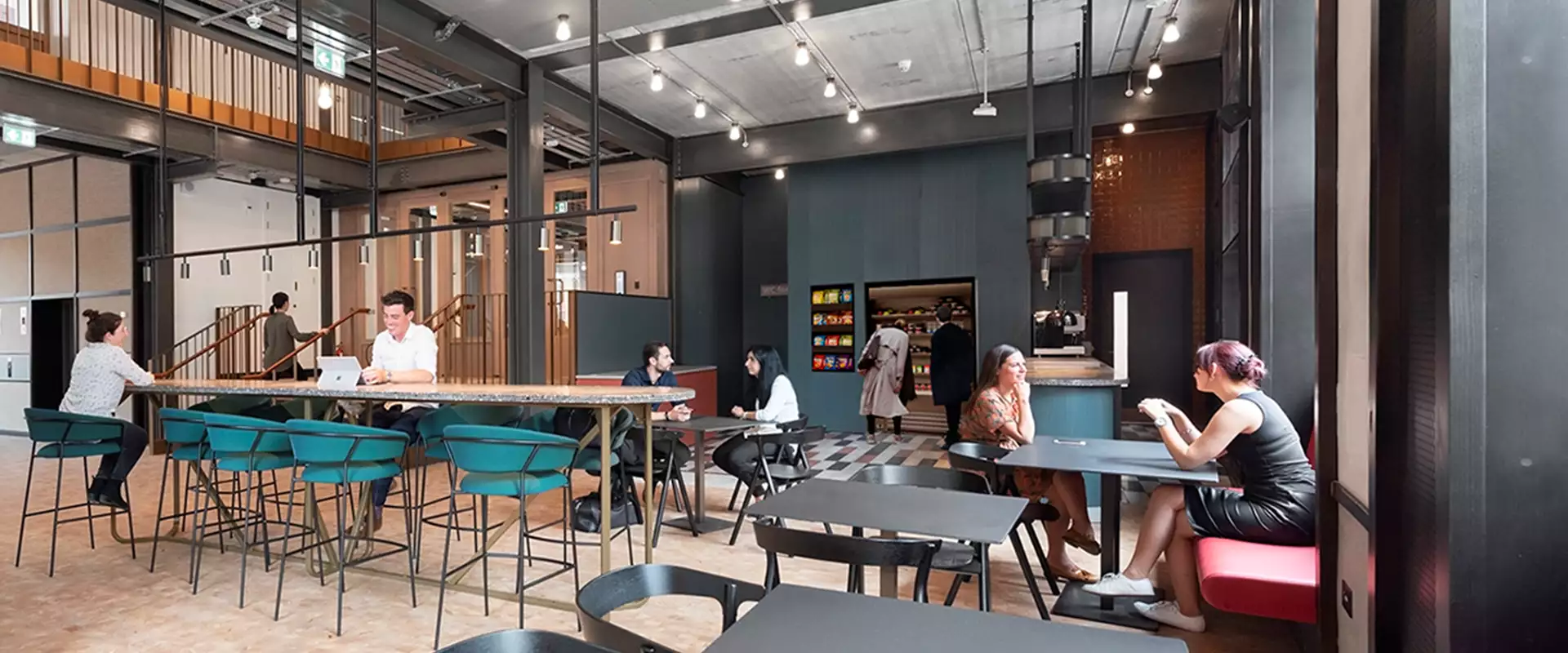Related Articles

Workspace customer Quell Tech celebrates $3M in seed funding

How to build a thriving company culture


Vintage T-shirt vendor Truffle Shuffle started trading in 2004 and has grown to be a significant player in the retro t-shirt market.
Truffle Shuffle implemented mobile payments just over a year ago with help from a graduate web developer for the grand total of £200. Now, their mobile customers’ conversion rates have increased five-fold and resulting revenue has tripled. Founder Pat Wood talks to inspiresme.co.uk about the history of Truffle Shuffle, and how mobile payments have helped them expand quickly.
Truffle Shuffle has been going since 2004 and is growing successfully, but Pat admits there were hard times in the initial start-up period. One of the biggest issues he faced – like most companies – was the lack of funding. But unlike a lot of companies, he did not want to borrow the cash.
“I wasn’t confident that this would be such a successful business, and therefore didn’t want to risk others’ borrowed money, so grew the business organically from the profits generated by early sales. This probably reduced potential growth, but also reduced pressure.”
Our online shop has a market of millions of people, and a daily ‘footfall’ close to TopShop’s flagship Oxford Street store.
Because of this, the company did not have the budget to hire web developers and designers and were therefore forced to do most of the work themselves.
“Being a bedroom business with no funding, we couldn’t afford to hire web developers or designers, so had to learn the ropes ourselves, trawling the internet for the answers of how to design and develop a rudimentary e-commerce website.”
The third major challenge the company faced was poor bank facilities, something that can seriously affect new businesses that may need more liberal payment terms and a range of facilities to help them grow and develop.
“Being assigned a poor bank manager was quite a challenge. He wanted to put a debenture against us to mitigate the risks of us accepting card payments, and eventually threatened to withdraw our facilities when we refused. Moving to a new bank was one of the best moves we’ve made – not because of the difference in the services provided by the bank, purely because we were assigned a bank manager who was interested in our growth and continued success.”
Despite the challenges, the company has managed to grow successfully. Much of this, says Pat, is down to common sense, which he says is the most important skill to bring to the table when starting a company.
“My success really boils down to this one point. Should you spend £10 in advertising to sell a £10 t-shirt? Should you hire a web designer to make a website, or learn to do it yourself? If it doesn’t seem like the right thing to do, it probably isn’t! You should be an expert in your field, and if that requires some late nights and some serious learning, then do it yourself… why pay £20,000 to someone to do your PR, when you could phone editors yourself and keep that £20,000 in your pocket?”
Truffle Shuffle is an online business through-and-through, and in fact, the eCommerce model is key to its success. Pat believes that a shop selling 80s movie t-shirts on the high street could never generate the amount of sales needed to become profitable – the market would be too small.
“Our online shop has a market of millions of people, and a daily ‘footfall’ close to TopShop’s flagship Oxford Street store. Opening a niche retailer requires a large demographic to market to, and in my opinion, there is no better marketplace than the internet to open your doors to a massive population.”
Truffle Shuffle sell 80s t-shirts but they are not the only player in what is a very competitive marketplace, often with low margins. Because of this, establishing long-term relationships is important, and Pat takes steps to ensure his customers leave with a smile on their face.
We built our name by selling exclusive, individual products, and we try our hardest to maintain that exclusivity
“We always make sure we stick to our niche. We built our name by selling exclusive, individual products, and we try our hardest to maintain that exclusivity. There are a few latecomers to the market who have attempted to replicate what we do, but I strive to ensure we do it best!”
“Secondly, we love our customers the most. Our biggest ethic, mantra, ethos, mission – whatever you want to call it – is to provide outstanding customer service. We want our web-shop to be easier, friendlier and more interesting to buy from than your local high street store. So we re-invest hundreds of thousands of pounds into well trained, high calibre staff to look after our customers as they would expect to be looked after themselves.”
One of the things the company has been focusing on is mobile commerce. With the explosion of m-commerce, companies that don’t allow their customers to browse and purchase goods via handheld devices are putting themselves at a significant disadvantage.
“A smartphone application is an idea way to showcase your business and drive incremental sales. From my experience, at first glance it can come with a pretty hefty price-tag and a couple of headaches, but if you do your research you’ll find that’s not the case at all.”
Pat Wood wanted to jump on board with m-commerce, but was not keen to pay the significant sums of money that had become the norm for application development.
“I very quickly became fed up with quotes for ridiculous amounts of money when searching for a solution. Thinking about it logically, a mobile website requires very basic development and graphical skills. I couldn’t understand where the hassle and cost was coming from.”
In the end, Truffle Shuffle worked with a graduate developer and managed to implement an m-commerce solution for £200. When it comes to unchartered trading platforms, Pat Wood advises businesses to weight up their options carefully.
“There are lots of businesses out there who will just throw money at the task at hand, assuming the end result requires a small fortune to achieve. With mobile optimisation that’s simply not the case and we are living proof of this. We hired a PHP developer through a graduate internship scheme for one month, at a cost of £1,000 with the university subsidising £800 of it. One month later, we were up and running. It’s all about simplicity as your mobile platform is essentially a diluted version of your website. Don’t reinvent the wheel!”





Mon-Fri 9am-5.30pm